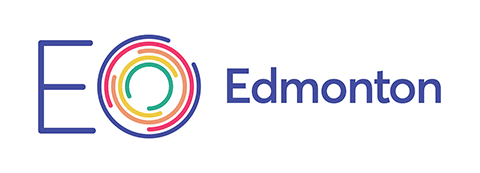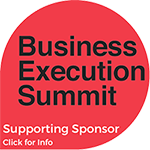By Lily Brooks, Sherri Bowles, and Vijay Masih
Professional development can be a positive experience if done right. As the spectrum of candidates varies from entry-level to executive-level experience, it is essential for employers to target their professional development program to the candidate level you are appealing to. Regardless of experience level, professional development should be personal to individual employees and speak to their desires to develop a new set of skills or improve upon existing ones.
If you are hiring for a position that is entry level to 5 years experience, but still years away from a managerial position, you may end up attracting almost every person within a 100km radius with a resume! But, how to attract the attention of that ideal candidate? That one person who will make your life easier AND be eager to commit to your organization?
For Junior level candidates (those who may be new to the work force, have a few years of experience under their belt, or those who are new to an industry or field of expertise), here are 3 things that will set you apart if you are seeking to hire a junior level candidate:
1. Mentorship and Feedback – Employees at this stage of their career are eager to grow and develop. They want consistent feedback whether it is on the fly, monthly, quarterly, or yearly. It is important for their career development to have mentors or leaders who take the time to give feedback; ultimately helping them decide whether to join your organization or not. Hearing, “you’re doing a great job” or, “you’re on the right track” goes a long way. It builds confidence and challenges us all to venture outside of our comfort zone where improvement is realized.
2. Growth/Advancement Opportunities – This can be a tough one. What is growth? Is it salary increases? Title changes? Personal development? Education? On the one hand, you must earn career growth and you cannot guarantee a path for someone because there are so many variables. Be sure to explain what career progression looks like in your organization. This is what employees at this stage want to see and hear. You can use real examples of employees who have been able to grow professionally and illustrate what they did to stand out. Using examples will motivate and comfort the employee so they feel they will be taken care of down the road.
3. Soft Skill Development – this can be the most important factor to someone who is early in their career. Soft skills, as we all know, can be the “thing” that sets us apart from our peers in a competition for a job, promotion, or really, any opportunity. This may require pushing an employee out of their comfort zone and bringing them to networking event. It can also mean having them deliver presentations, guiding them through a workplace conflict, or helping them hone a skill they need to get to that next level.
Employees at this stage love to be challenged and want to prove themselves, they just need to be given the opportunity. Adding extra tasks onto their plate will allow them to mature as people, which in the end, benefits the individual and the company. Development is a major factor that most employees are looking for when considering roles and companies they want to work with.
You may also find yourself needing senior level employees who tend to bring a wealth of knowledge, talent, and stability to your organization. These candidates are key in helping establish company culture, providing leadership to lower-level employees, and helping your organization define and achieve its vision. Senior-level employees can be difficult to attract because, more often than not, they are already employed in a position where they are treated and compensated well. This is someone who already has a vision for themselves, and who knows how to realize success.
A senior-level candidate will be interviewing you just as much as you are them, so here are 3 factors you will want the candidate to know to tip the scales in your favour:
1. You will rely upon their direction just as much (maybe even more) as they’ll rely on yours – Senior level candidates are not looking for an opportunity where they will be told what to do and how to get there. By this career point they have been there and done that! A senior level professional is more interested in what the higher-level goals of the organization are and how their experience and skillset will contribute to achieving them. It’s important that throughout the recruiting process the candidate is reassured why their skillset and experience are needed by your organization, exactly what their involvement will be in current and future projects, and that their input and direction will be vital to the team’s success. A senior level candidate will be more attracted to joining your team if they understand what is expected from them and know that they will be given the resources and autonomy to get there.
2. Opportunity for Growth – You have heard this a million times, that’s because personal and professional growth are important at all levels of recruitment. Growth for a senior level candidate means something quite different than growth for a junior level candidate. At this point in the candidate’s timeline, they have already gone through several career stages. They will be ready to take on the same or more responsibility than they have previously, and they will want an opportunity to achieve growth within the organization, the employees on their team, and themselves. Throughout the interview process, take time to understand which areas the candidate is looking to expand and what growth really means to them. An alignment in what the candidate is looking for and what your organization can offer is vital to determine whether or not the candidate will be a good long-term fit for you.
3. Strong Cultural Fit – Culture fit is important for all employees. It is not merely about building a team where everyone shares similar beliefs and interests, it is about building a workplace where all are able to buy into a community vision and exhibit common behaviors on a day to day basis. A strong corporate culture can help organizations attract and retain top tier talent and increase productivity. That culture makes an engaged workforce possible, where employees are motivated by a sense of belonging and things beyond money, vacation time and benefits. The goal of recruitment is to find individuals whose personal values genuinely align with your corporate values, and in turn the corporate culture.
4. Have fun! – There are senior level candidates that are no longer looking to achieve more or climb the corporate ladder, but their career fulfillment and engagement in a new opportunity is to have fun! You will hear this in their desire to “get their hands dirty”, wear multiple hats in the organization, or the sentiment to “Give Back”. These candidates make excellent resources for short- or long-term opportunities and to attract them, the employer must be flexible to go outside the tactical nature of a job description or role and instead highlight their pain points, and the “have fun” senior level candidate will relish in the opportunity to solve them!
There is always room for improvement to make professional development relevant and useful to all employees but if professional development is a priority for your company then you will get the biggest bang for your buck just by simply encouraging your team to challenge themselves. Where there is a will, there is way! Make it happen and your business will start singing a new tune.










